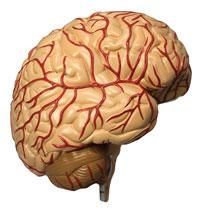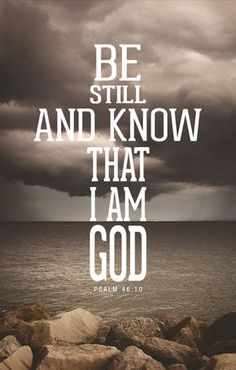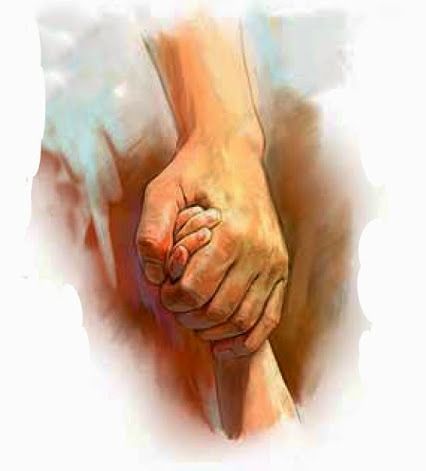Forgiveness—a fundamental tenet of the Christian faith. But oh how many of us Christians are failing at this very substantial principle? It seems that we are failing to realize that violation of this principle is a sin and can keep us from entering the Kingdom of Heaven. But please don’t take my word for it, let’s see what the Word of God says about it as we take a look at the Bible and Forgiveness.
What is Forgiveness?
For starters, what is forgiveness? Forgiveness is the act of excusing or pardoning another in spite of his or her slights, shortcomings, and errors.
As a theological term, forgiveness refers to God’s pardon of the sins of man.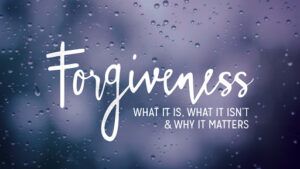
The Bible teaches that God completely forgives sin. In Psalm 51, we have David’s plea for forgiveness for his sin with Bathsheba and his murder of her husband.
Ps 51:1, 7, 9:
1 Have mercy upon me, O God, according to thy loving-kindness: according unto the multitude of thy tender mercies blot out my transgressions.
7 Purge me with hyssop, and I shall be clean: wash me, and I shall be whiter than snow.
9 Hide thy face from my sins, and blot out all mine iniquities. KJV
After David was rebuked for his transgressions by the prophet Nathan, David went to the only One who could forgive him and make him clean again.
Let’s look at this promise from God regarding our sins. Heb 10:14-18
14 For by one offering he hath perfected for ever them that are sanctified.
15 Whereof the Holy Ghost also is a witness to us: for after that he had said before,
16 This is the covenant that I will make with them after those days, saith the Lord, I will put my laws into their hearts, and in their minds will I write them;
17 And their sins and iniquities will I remember no more.
18 Now where remission of these is, there is no more offering for sin.
This passage includes two quotations from Old Testament Prophesy regarding the new covenant that arrived after Christ. This new covenant guarantees that sins will be effectively and completely forgiven (vs. 17) because no additional sacrifice for sins is needed (vs. 18). The blood of Christ is the “one offering” for the remission and forgiveness of sins (vs. 14). This forgiveness is a crucial part of the gospel message. To be forgiven is to be identified with Christ in His crucifixion and resurrection.
The Conditions for Forgiveness
This forgiveness is granted by God’s grace but it is not unconditional. In order for God to forgive sin, four conditions are necessary.
The first is sacrifice. A life must be taken as a substitute for that of the sinner. Lev 17:11 reads: “For the life of the flesh is in the blood: and I have given it to you upon the altar to make an atonement for your souls: for it is the blood that maketh an atonement for the soul.” In the Old Testament, the sacrifices entailed the shedding of blood of animals for the atonement (penitence) of the sin of the soul.
New Testament Scripture confirms this by stating that “without shedding of blood is no remission.” (Heb 9:22) and we see in the passage above (vs. 14), that Christ is the one offering for remission.
So we see that the first condition has been covered by God through the sacrifice of His Son, Jesus Christ.
The next three conditions are upon us. Therefore, the second condition is a sinner must approach God’s sacrifice in a spirit of repentance. Let’s look at Mark 1:4:
4 John did baptize in the wilderness, and preach the baptism of repentance for the remission of sins.
John the Baptist was the forerunner of Christ and he preached repentance to 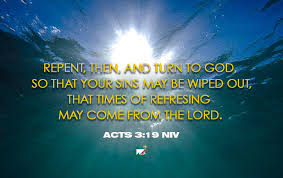 prepare the way. A sinner must repent (turn away) from his or her sins to receive forgiveness. The Scripture reads in Prov. 28:13
prepare the way. A sinner must repent (turn away) from his or her sins to receive forgiveness. The Scripture reads in Prov. 28:13
People who conceal their sins will not prosper, but if they confess and turn from them, they will receive mercy.” Therefore it’s not enough to confess sins but to turn away from them in order to receive from the Lord. For more on repentance, please read the article: Repentance and Sin on this website.
The third condition is: a sinner must have faith. In order for a sinner to confess, repent, and receive mercy from the Lord, the sinner must believe in God by faith; the sinner must believe that God exists in the first place. Scripture clearly tells us in Heb 11:6 “But without faith it is impossible to please him: for he that cometh to God must believe that he is, and that he is a 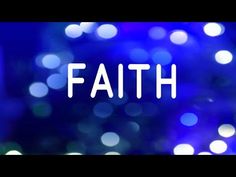 rewarder of them that diligently seek him.” Faith is the initiator of the Christian’s journey. [Don’t leave home without it!] For more on faith, please read the article: What is Faith about—The Incontestable Engine of Christian Doctrine on this website.
rewarder of them that diligently seek him.” Faith is the initiator of the Christian’s journey. [Don’t leave home without it!] For more on faith, please read the article: What is Faith about—The Incontestable Engine of Christian Doctrine on this website.
The next and final condition: the sinner must be willing to forgive. Jesus
said in Matt 6:14-15:
14 For if ye forgive men their trespasses, your heavenly Father will also forgive you:
15 But if ye forgive not men their trespasses, neither will your Father forgive your trespasses.
God’s forgiveness of us demands that we forgive others, because grace brings responsibility and obligation. If we don’t forgive others, we will not be forgiven of our sins either. Let’s recognize this and look at what Jesus said in Mark 11:25-26:
25 And when ye stand praying, forgive, if ye have ought against any: that  your Father also which is in heaven may forgive you your trespasses.
your Father also which is in heaven may forgive you your trespasses.
26 But if ye do not forgive, neither will your Father which is in heaven forgive your trespasses.
This is for an ongoing follower who is praying. Jesus said if you have an issue with someone, forgive them so that the Father in Heaven may forgive that follower (the one who’s praying). But if that follower doesn’t, he or she won’t be forgiven of their sins either. We are to walk in forgiveness. A forgiving spirit serves as evidence that one is a true follower of Christ. Jesus placed no limits on the degree to which Christians are to forgive their fellowmen (Luke 17:4). Forgiveness is a duty and a command that Christ takes very serious; to the point that if we don’t obey it, our sins won’t be forgiven.
Jesus is the epitome of forgiveness and He exemplified it perfectly. After being brutally beaten and crucified on the cross He said “Father, forgive them; for they know not what they do. Luke 23:34
Just to be clear, none of these conditions are to be met solely upon the beginning of the Christian journey, but throughout the journey. We must always have faith, we must always repent, and we must always forgive others. After all we are all born into sin, and we all fall short (Rom. 3:23). So is it wise to practice a behavior that won’t allow us to be forgiven?
This is where the rubber hits the road; because there are countless professing Christians lacking in these areas; especially in when it comes to forgiveness. Instead of walking forgiveness many are walking in unforgiveness.
What is Unforgiveness?
Unforgiveness is the opposite of forgiveness. Unforgiveness is when an individual is disinclined or incapable to forgive someone for betraying, hurting, or breaking their trust or otherwise causing them some deep disturbing pain. Last but not least, unforgiveness is sin. This is why we are 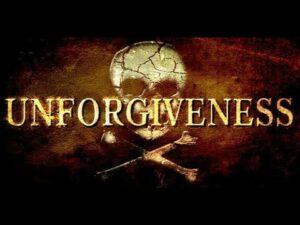 not forgiven of our sins if we practice it.
not forgiven of our sins if we practice it.
Now let’s face it; there are a lot of people dealing with some emotional pain as the result of another and this is not a laughing matter. But those who are walking in the Spirit of Christ can overcome this distressing situation. For those who are not, there is nothing but trouble when traveling down the road of unforgiveness. It is a manifestation of the flesh and it is a blessing blocker.
What are the Consequences of Unforgiveness?
Well, one consequence has already been covered. But to elaborate, when we walk in unforgiveness; harboring it in our hearts, we are sinning. In addition, we aren’t forgiven for our other sins. Therefore, we are living in a state of sin. It is not possible to be in God’s favor while we are in a sinful state.
Unforgiveness wears many hats:
- Anger—this is generally the first reaction
- Holding a grudge—after being angry for a period of time, it becomes a grudge
- Revenge—this anger has become so intense that you just want to get even and you won’t be satisfied until you do.
- After being angry, holding a grudge and desiring revenge that hasn’t been accomplished, you just get bitter and miserable. This has the same effect as constant worry.
How can a person with this unfavorable spiritual condition have favor with God and Christ? You can’t; unforgiveness is an evil spirit. This is why Jesus said again in Mark 11: 26″ But if ye do not forgive, neither will your Father which is in heaven forgive your trespasses.”
Keep in mind that this anger doesn’t only have an effect on the person holding the anger, but it can affect others around them as well. It can ruin innocent relationships; causing collateral damage. It can wreak havoc in a personal relationship (marriage, friendship, parents, employer, etc.).
I can tell you from experience, if you want to put a relationship on a slippery slope, any relationship, hold a grudge. Understand that it accomplishes absolutely nothing but negativity.
In addition to damaging ourselves spiritually, unforgiveness causes physical damage as well. Unforgiveness puts undue stress on the body. As a result, an unforgiving spirit can manifest itself into numerous physical conditions. Medical evidence shows that unforgiveness can lead to:
- Cancer—61% of cancer patients have forgiveness concerns
- Low self-esteem
- Lack of self-love stem from not forgiving oneself or self-acceptance; yes we must forgive ourselves.
- Bitterness— this causes an increase in the risk of depression
- Sleep deprivation and anxiety
- High blood pressure
- Heart disease
It’s just not worth it! Let it go!
This is a serious situation. Unforgiveness is an insidious sin and many don’t realize how damning it is. But understand, no matter how much one attends church, studies and know the Scriptures, or gives to charity, if they are harboring an unforgiving spirit, they are living in sin and an unfavorable spiritual condition.
I can attest the insidiousness of this condition. Not until I was born again and the Spirit empowered me to release my unforgiveness did I realize what a weighted burden I was carrying. Believe me, it is a great release! Forgiveness is a gift to ourselves; the greatest gift we can give ourselves after receiving Christ.
How to Overcome Unforgiveness
First, we must know that Christ forgives. Therefore, we must pray for forgiveness and the strength to overcome our unforgiveness. Forgiveness isn’t an easy accomplishment when we have been terribly hurt. But with the power of the Holy Spirit, nothing is impossible. For more on the Holy Spirit, read the article: All about the Holy Spirit on this website. After praying, try these below:
The first step is to be aware of the negative emotions that we feel towards 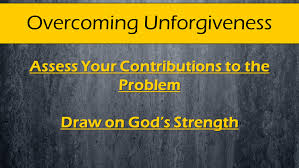 the other person including anger, hatred, bitterness, hurt, and oh yes, jealousy. Awareness will help to acknowledge the need to forgive. As mentioned earlier, holding on to the negative emotions is highly toxic and not good for health.
the other person including anger, hatred, bitterness, hurt, and oh yes, jealousy. Awareness will help to acknowledge the need to forgive. As mentioned earlier, holding on to the negative emotions is highly toxic and not good for health.
Next release the emotional pain by making a deliberate decision to forgive and let go; we must consciously set our minds to it. Now again this isn’t easy and this process may take time; especially if this ongoing pain has been in existence for a long period of time and due to different emotions that we have to process. Some unforgiveness is aged and has been embedded in our spirits and souls.
True forgiveness is when we forgive and forget. However, because we are imperfect human beings and although we may forgive but we may not be able to forget, the initial resentment and pain is gone. Therefore, even if it is a struggle to forget, it’s very important to forgive by letting go of the emotional pain that has been produced. Then the rest will fall into place
Take responsibility for that part that we played. We can’t control anyone; the only person that we can control is ourselves. Therefore, did the other person really mean to hurt us or did we over react? Do they know that they hurt us? Did we play any part in the situation? Is there something we may have done to avoid the situation? Taking legitimate responsibility for why we got hurt enables us to reflect on how to not put ourselves in the same situation again.
When we discover what part we played, we must be willing to forgive ourselves, move on and learn from the experience.
It may help to talk it over with the person. Sometimes people are unaware that they’ve offended you and that you’re harboring unforgiveness. It may help for you to let them know how you feel. It can aid in releasing the hostility and resentment.
If that isn’t feasible, write out your feelings on paper. You don’t have to send it or present it but it is still expressing how you feel and can help with release.
Last but not lease, continue to pray. We must pray for strength to overcome

the temptation to harbor any unforgiveness in our hearts both presently and in the future., because situations are likely to arise that will cause dissension. But with the power of the Holy Spirit, we shall overcome!
Questions, comments and concerns are welcomed below.
Blessings!

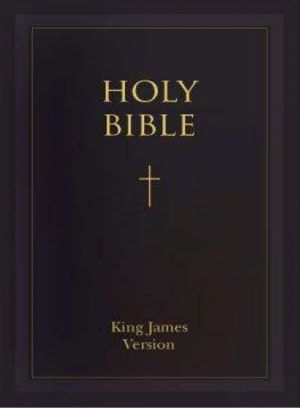
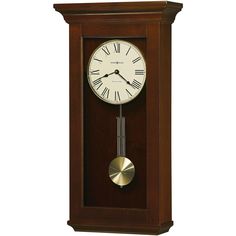 this earth, and fulfill the plan and purpose God has for our lives.
this earth, and fulfill the plan and purpose God has for our lives.

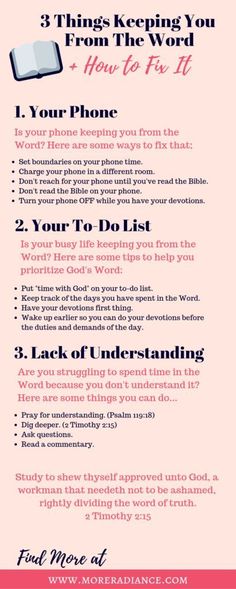 schedule for tomorrow, if you have one; and see if you are actually doing the things that reflect your priorities.
schedule for tomorrow, if you have one; and see if you are actually doing the things that reflect your priorities.
 worries concerning the past and the future steal our today s. But the bible tells us, “Therefore do not worry about tomorrow, for tomorrow will worry about itself. Each day has enough trouble of its own. [Matt 6:34 Niv]
worries concerning the past and the future steal our today s. But the bible tells us, “Therefore do not worry about tomorrow, for tomorrow will worry about itself. Each day has enough trouble of its own. [Matt 6:34 Niv]
 getting too technical, a homosexual is an individual, male or female, that has a tendency to direct their sexual desires toward another of the same sex.
getting too technical, a homosexual is an individual, male or female, that has a tendency to direct their sexual desires toward another of the same sex.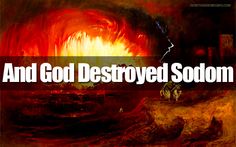 and objectionable to a holy God. After all, He destroyed an entire city because of homosexuality.
and objectionable to a holy God. After all, He destroyed an entire city because of homosexuality.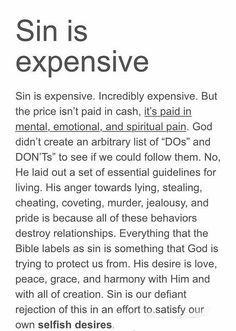 Further, homosexuals will not inherit the Kingdom of God—they will not make it into heaven.
Further, homosexuals will not inherit the Kingdom of God—they will not make it into heaven.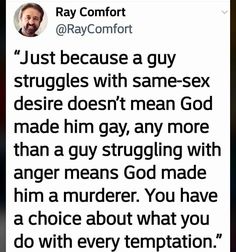 us [John 3:15]. To continue with the 1 Corinthians passage, verse 11 reads: “And that is what some of you were. But you were washed, you were sanctified, you were justified in the name of the Lord Jesus Christ and by the Spirit of our God. The blood of Jesus cleanses us from these vices if we accept Him and follow Him as our Savior.
us [John 3:15]. To continue with the 1 Corinthians passage, verse 11 reads: “And that is what some of you were. But you were washed, you were sanctified, you were justified in the name of the Lord Jesus Christ and by the Spirit of our God. The blood of Jesus cleanses us from these vices if we accept Him and follow Him as our Savior.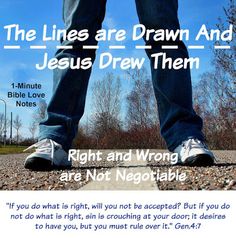 him should not perish, but have everlasting life.
him should not perish, but have everlasting life.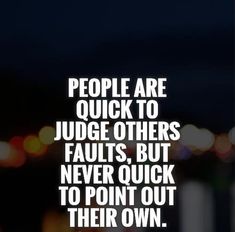 a plank in your own eye? 5 You hypocrite, first take the plank out of your own eye, and then you will see clearly to remove the speck from your brother’s eye. NIV
a plank in your own eye? 5 You hypocrite, first take the plank out of your own eye, and then you will see clearly to remove the speck from your brother’s eye. NIV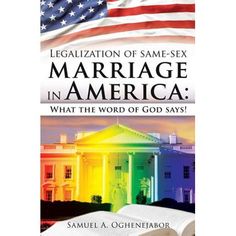 wonder that God has allowed a virus that has even stopped worship gatherings. The world has infiltrated the church.
wonder that God has allowed a virus that has even stopped worship gatherings. The world has infiltrated the church.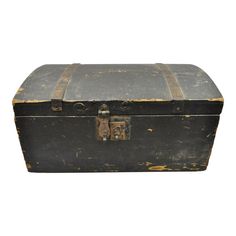 But It can also be something non-material or not of a physical nature: conceptual or spiritual. So…what do you treasure?
But It can also be something non-material or not of a physical nature: conceptual or spiritual. So…what do you treasure?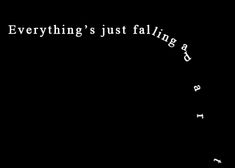
 one individual in particular; King Solomon, Son of David.
one individual in particular; King Solomon, Son of David.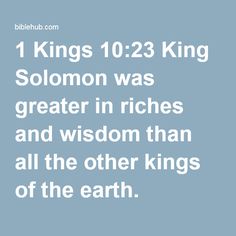 author of the book of Proverbs and is the author of the book of Ecclesiastes. Both books are packed with astounding wisdom. Ecclesiastes is basically an essay on life.
author of the book of Proverbs and is the author of the book of Ecclesiastes. Both books are packed with astounding wisdom. Ecclesiastes is basically an essay on life.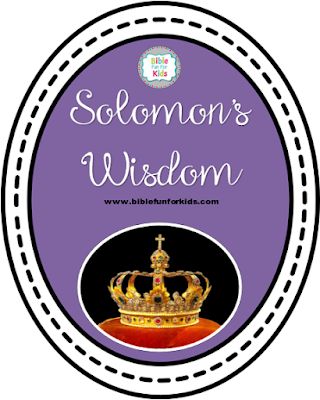 and I myself perceived also that one event happeneth to them all.
and I myself perceived also that one event happeneth to them all.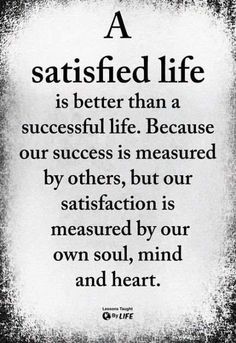 craving and desire for more and includes both material things and fleshly indulgence. Jesus wants us to realize that life isn’t measured by how much we own; our possessions—a beautiful home, the latest clothes, a new car, property, money and wealth. While these things are nice to have, they are not the whole of life. There are happy poor folks who are probably happier than the rich—as we saw with King Solomon.
craving and desire for more and includes both material things and fleshly indulgence. Jesus wants us to realize that life isn’t measured by how much we own; our possessions—a beautiful home, the latest clothes, a new car, property, money and wealth. While these things are nice to have, they are not the whole of life. There are happy poor folks who are probably happier than the rich—as we saw with King Solomon.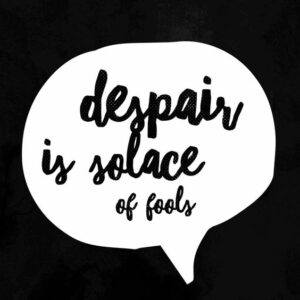 lives to the point that we deem them worthless because of our earthly circumstances. We must be wise and not be fools as the worldly. But let us keep our focus on the things above: the Kingdom of God and His righteousness and not on things of the earth and He will take care of us. Amen.
lives to the point that we deem them worthless because of our earthly circumstances. We must be wise and not be fools as the worldly. But let us keep our focus on the things above: the Kingdom of God and His righteousness and not on things of the earth and He will take care of us. Amen.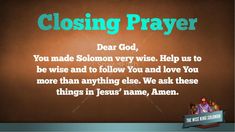
 rest of the world. We have access to a source that enables us to look beyond this and every other encounter of adversity we may face. We have Hope. But what is the reason for our hope?
rest of the world. We have access to a source that enables us to look beyond this and every other encounter of adversity we may face. We have Hope. But what is the reason for our hope?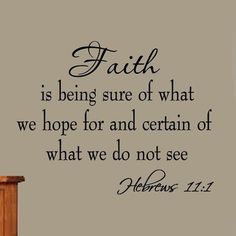 offering) for when we transgressed the Law in the past. “all have sinned” everybody needs Christ. But this hope only applies to, as verse 22 states: “upon all them that believe.” It’s all about faith. For more on faith, read the article:
offering) for when we transgressed the Law in the past. “all have sinned” everybody needs Christ. But this hope only applies to, as verse 22 states: “upon all them that believe.” It’s all about faith. For more on faith, read the article: 
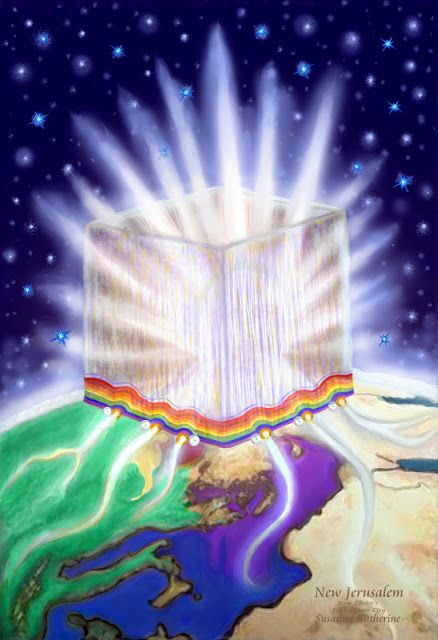
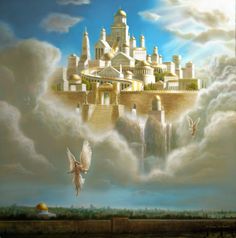 of the twelve apostles of the Lamb.
of the twelve apostles of the Lamb.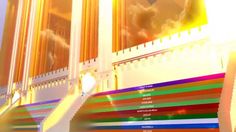 according to the measure of a man, that is, of the angel.
according to the measure of a man, that is, of the angel.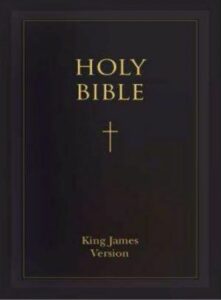

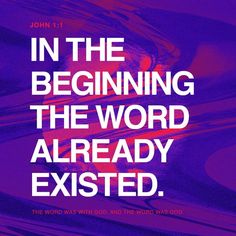 “beginning”? This is a translation from the Greek word, En archē [pronounced en ar-chay’] which means before there was a beginning. This is a statement of eternity; it doesn’t mean from the beginning but eternity past. God is preexistent and has no beginning, He just was and just is
“beginning”? This is a translation from the Greek word, En archē [pronounced en ar-chay’] which means before there was a beginning. This is a statement of eternity; it doesn’t mean from the beginning but eternity past. God is preexistent and has no beginning, He just was and just is
 states: “and the Word was made flesh and dwelt among us.”
states: “and the Word was made flesh and dwelt among us.” 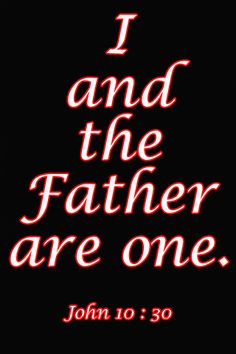 person. Jesus is of the very same thing, of the very same substance as God. He was claiming to have the same nature of God, to be One with God…in nature, substance, essence, being, power and glory.
person. Jesus is of the very same thing, of the very same substance as God. He was claiming to have the same nature of God, to be One with God…in nature, substance, essence, being, power and glory.
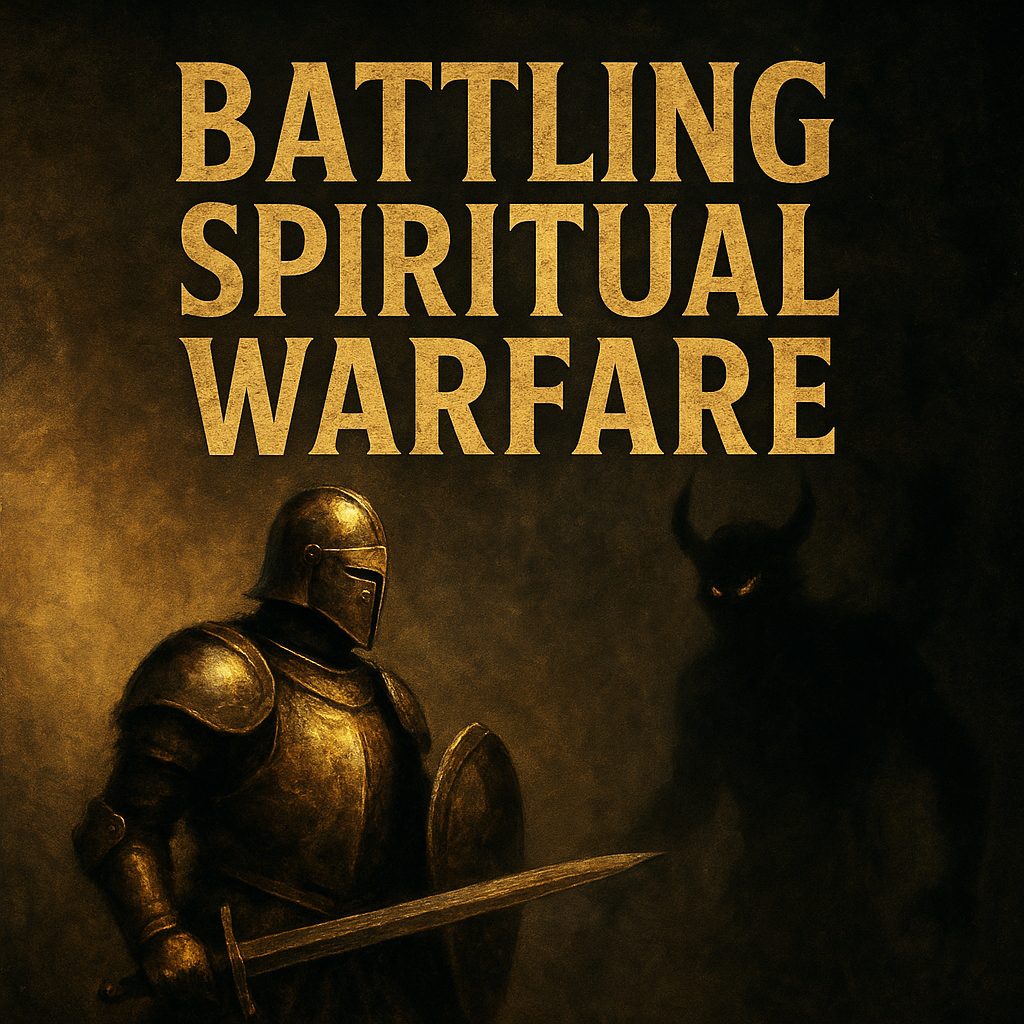
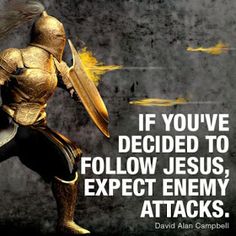
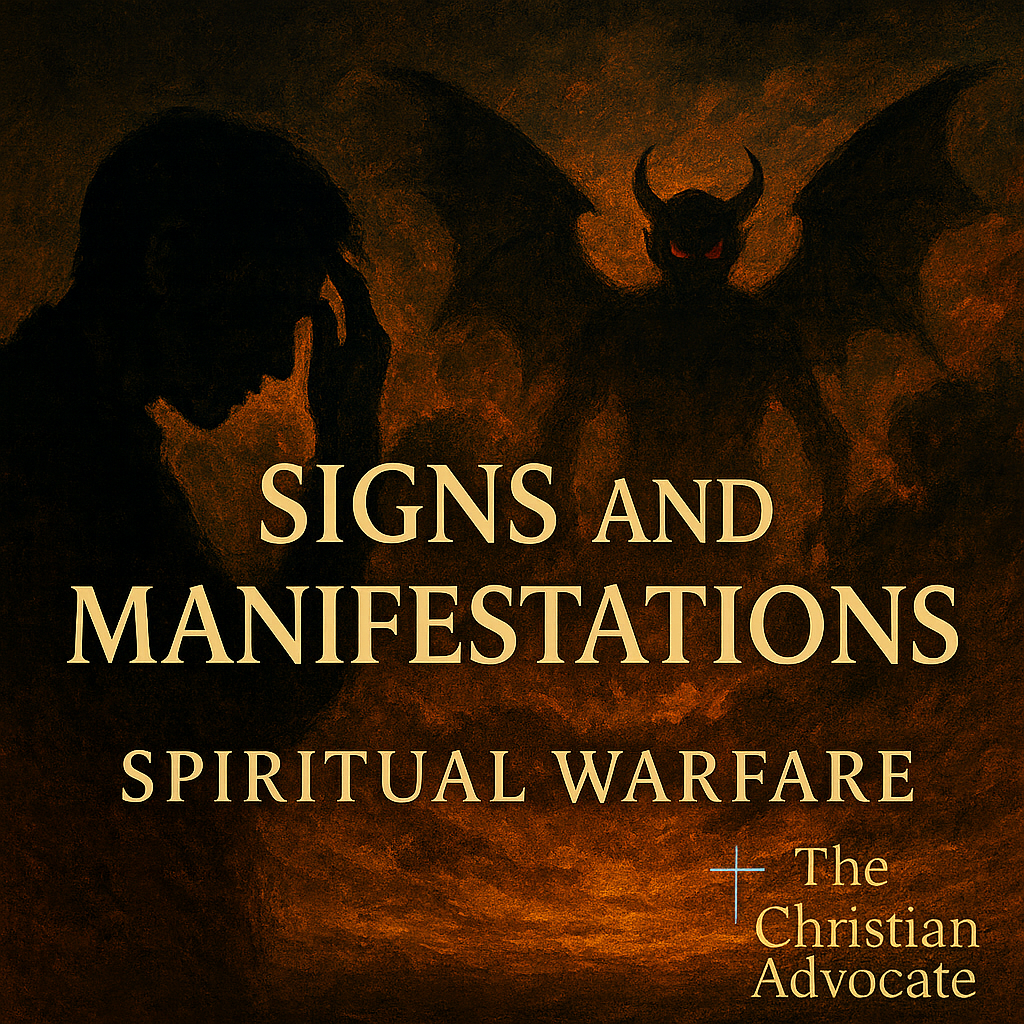
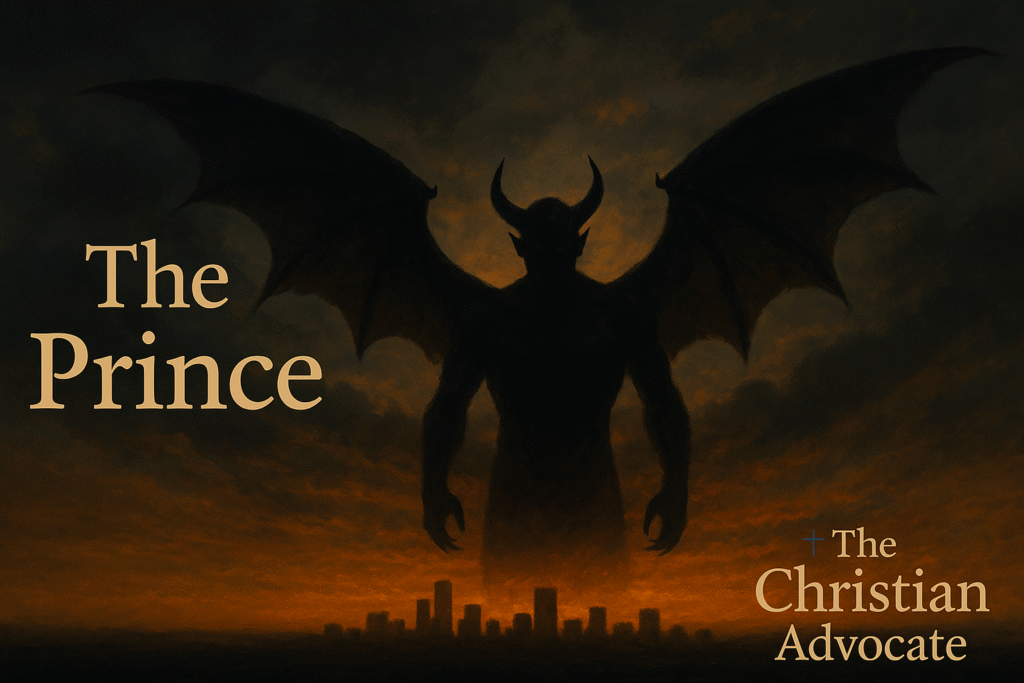

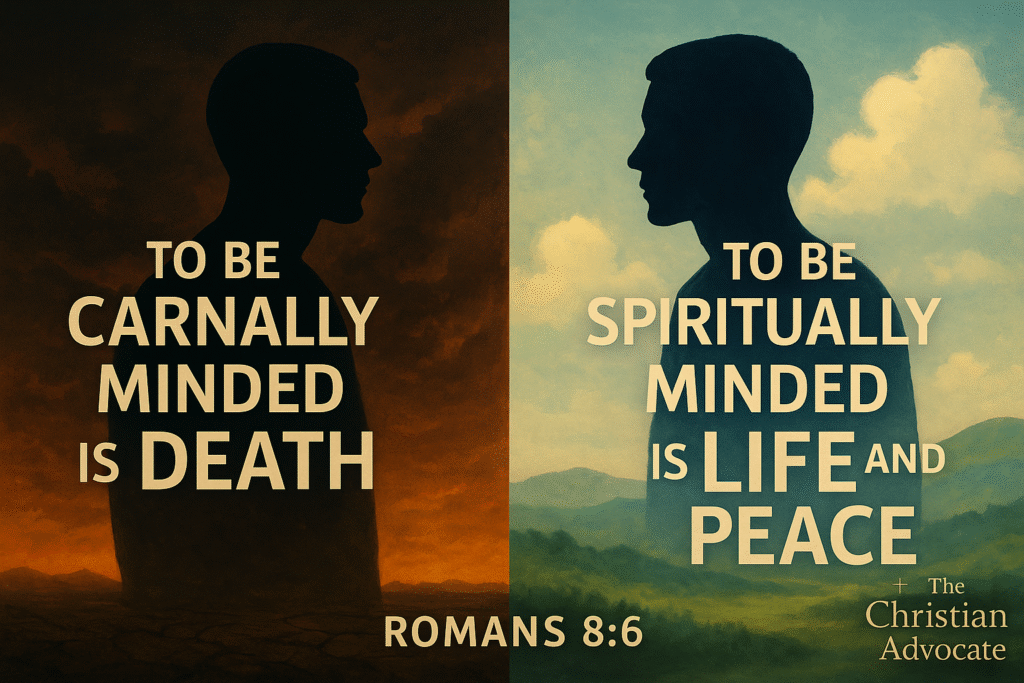
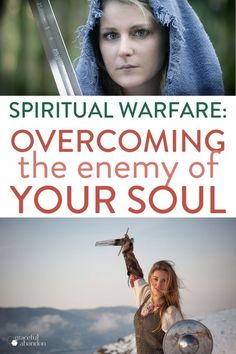 article,
article, 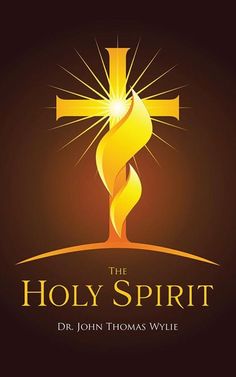
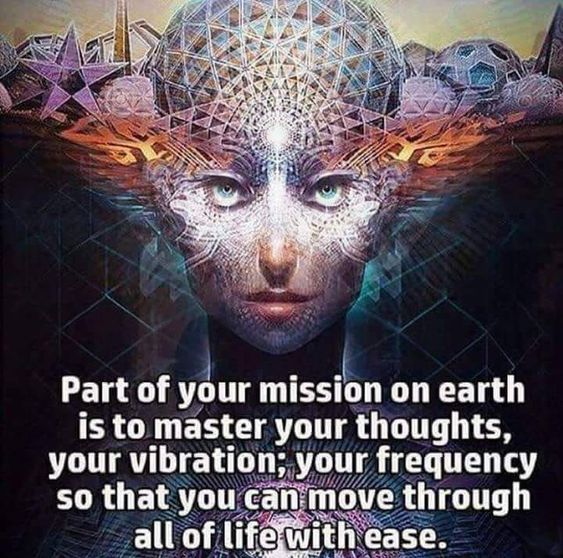
 will be quickened, or given new life. This is what being born again is truly about. But it is a constant battle and we Christians must constantly be on the defensive to keep our mind of Christ. [1 pet 5:8]
will be quickened, or given new life. This is what being born again is truly about. But it is a constant battle and we Christians must constantly be on the defensive to keep our mind of Christ. [1 pet 5:8]
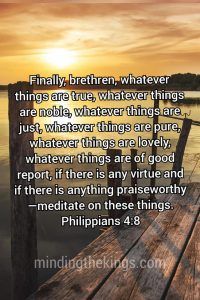 honest, whatsoever things are just, whatsoever things are pure, whatsoever things are lovely, whatsoever things are of good report; if there be any virtue, and if there be any praise, think on these things.
honest, whatsoever things are just, whatsoever things are pure, whatsoever things are lovely, whatsoever things are of good report; if there be any virtue, and if there be any praise, think on these things. we find this in the psalms. Let’s look at Psalms 63:5-6. This passage is about meditating on God.
we find this in the psalms. Let’s look at Psalms 63:5-6. This passage is about meditating on God. we never meditate on His love, we will never experience it. Now this is very easy to say and acknowledge. But the fact is, very few of us really know how much God loves us. Because if we did we would act a lot differently than we do. We must be conscious of God’s love which means not just lip service, but it should be something that we are actively aware of.
we never meditate on His love, we will never experience it. Now this is very easy to say and acknowledge. But the fact is, very few of us really know how much God loves us. Because if we did we would act a lot differently than we do. We must be conscious of God’s love which means not just lip service, but it should be something that we are actively aware of. mind. A person flowing in the mind of Christ will find his thoughts filled with praise and thanksgiving.
mind. A person flowing in the mind of Christ will find his thoughts filled with praise and thanksgiving.